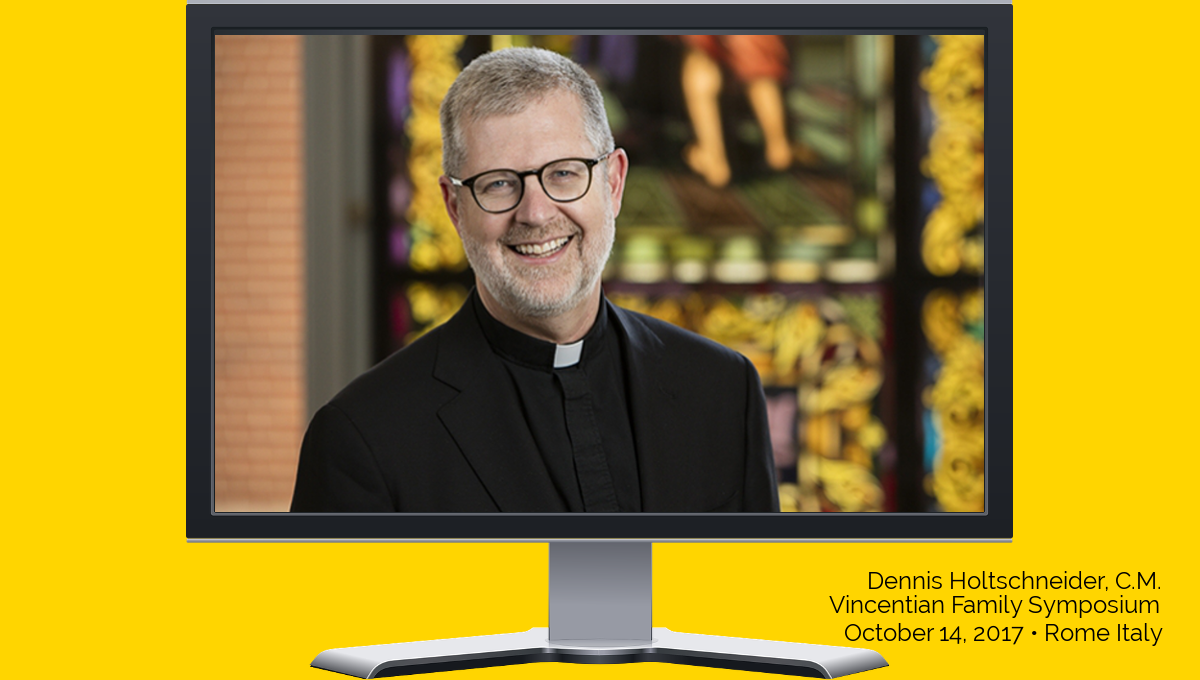Systemic change has got a “big sister” called collective impact. You’ve read about it often on .famvin. And formation — history and spirituality — well, you know, it’s just our thing! The Vincentian Family at Rome was privileged to hear Vincentian Fr. Dennis Holtschneider speak on these two issues.

A few thoughts on collective impact from his talk at the Symposium called, “From Here to Where?”
Back in 2011, John Kania and Mark Kramer published a seminal article in the Stanford Social Innovation Review called “Collective Impact.”[4] In it, they spoke of partnerships as not being enough. What’s needed for true social impact, they discovered, was partnerships where (1) everyone who needed to be at the table was at the table; (2) where a common agenda was forged; (3) where individual organizations were willing to let go of control, adjust their own work so that the whole project could be successful, and even accept very specific assignments from the whole; (4) where people were willing to measure not only accomplishment, but all the key components that would eventually contribute or hinder that success; (5) where everyone involved was in constant communication so that activity could remain aligned and coordinated, (6) where a very strong and smart “backbone” organization drove all the activity, and (7) where everyone agrees that they will learn along the way and adapt the work based on what they learn.
That article is changing philanthropy in the United States, and encouraging broad coalitions in cities and elsewhere to come together to undertake large, complicated social goals. No single group ever had a prayer of addressing school reform, or environmental change or poverty. But together, collective impact is showing promise.[5] Collective Impact is far more than simply partnering. It’s a new way of working together to achieve very big goals, and I believe it holds great promise of organizations like ours as we take stock at 400 years and ask “From Here to Where?”
And formation? An important question he raised was who will do it in the future? Who will be the storytellers and the wisdom figures?
That story-telling has been made possible all these years by actual historians. Men and women – predominantly priests and sisters – who learned the original languages, read all that has been written by those who came before us, and earned graduate degrees in history so they understood the context of the time and thereby understood the Vincentian contribution. Those historians have been a magnificent gift to us, and whether or not any of us ever had the honor of hearing them speak, those who DID tell us our history relied on THEIR writings, THEIR translations, THEIR mentoring and training, THEIR tours of Paris. Those historians have not been many, but they have been a critical link for us. We must make certain that there are historians for the future, and those historians will not likely be priests or sisters. For the next hundred years, it becomes the responsibility of the Vincentian lay organizations to train, hire and fund historians. We don’t need many at any given time, but we need a few at all times, and hopefully able to speak the various languages that our members use.
The exact same is true for experts in Vincentian Spirituality. Who will inspire us and form our spirits in the century ahead? These could be priests, brothers and sisters. They could also be lay. What matters is that they are trained, and trained well. We need a plan there too. Perhaps like the story of “The Last Jedi” in Star Wars, new Jedi – Vincentian experts – will just appear, but we can’t count on it. We need a plan.
Read his lengthy and important presentation by clicking this highlighted link.





0 Comments